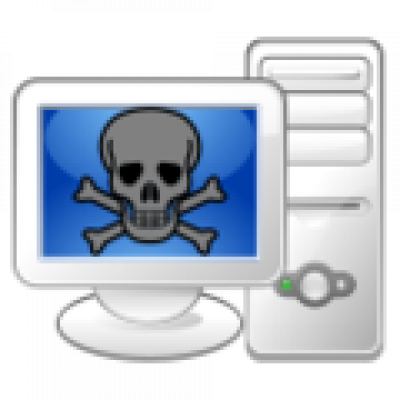-
Our Community
-
- Welcome Visitors Community Programs & Events Climate Remembrance Project Diversity Welcome Statement Life in Durham Places to Stay Places to Eat Places to Park Promotional Video Transportation Schools Oyster River School District
- Durham Public Library Programs & Events Trails and Town Lands Conservation Commission Land Stewardship Conservation Lands & Parks Conservation Easements Trails Youth Organizations Durham Preservation Durham Historic Association
- Volunteer Town of Durham Land Stewardship Public Library UNH Cooperative Extension Churchill Rink Parks & Recreation Recreation Program Calendar Outdoor Recreation Activities Outdoor Recreation Sites Sustainable Durham Recycling Information Swap Shop Information Earth Day 2023
-
-
Doing Business
-
- About Durham Economic Development Doing Business in Durham Why Choose Durham? Why Choose NH? Testimonials The Development Process Current Project Overview Town Wide Master Fee Schedule
- Business Visitation & Survey Project “In the Biz” Durham Business Video Spotlight
- External Resources Celebrate Durham Durham Business Association Business Directory
-
-
Inside Town Hall
-
- Departments Assessing Building Business Office Code Enforcement Information Technology Planning Town Clerk/Tax Collector Parks & Recreation Boards, Commissions & Committees Agricultural Commission Conservation Commission Historic District/Heritage Comm. Other Boards & Committees Planning Board Zoning Board
- DCAT Media Productions DCAT 22 Studios - Programming Weekly Schedule Zoom Video Meeting Schedule Town Council Town Administration Public Hearings Public Safety Police Fire McGregor Memorial EMS (Ambulance)
- Public Works Engineering Division Operations Division Sanitation Division Water Division Wastewater Division Stormwater Town Directory Telephone Directory by Department Services Directory
-
-
Helpful Resources
-
- Quick Links Assessors Online Database Bids and RFP’s DCAT Media Productions GIS Digital Maps Jobs Online Services Parking Information Social Services Town Holidays Trash Pick Up Holiday Schedule Transfer Station & Recycling Center Information Curbside Residential Pickup by Street Zoom Video Meeting Schedule
- Town Documents Budget & CIP Forms & Applications Master Plan Tax Increment Finance (TIF) Districts Tax Maps Town Charter Town Code Town Reports Town Wide Master Fee Schedule Zoning Ordinance Voter Information
- Contact Us Cemetery Information Social Media Facebook Twitter Town Newsletter Friday Updates Town Meetings & Events Agenda and Minutes Calendar Public Hearing Notices State & U.S. Representatives
-
Malware Avoidance Tips
There are numerous malicious email campaigns in active circulation on the internet utilizing virus-laden PDF attachments, malware encrypted text hyperlinks, and legitimate email addresses targeting local residents, governments, and private sector businesses alike. Computer users should therefore exercise constant vigilance.
Attackers typically target organizations or individuals with malicious emails containing an odd subject line such as “Unpaid Invoic” (note the incorrect spelling of Invoice) with an attachment like ‘invoice621785.pdf’ or a similar naming convention. If you open the attachment or click on the link, the chances are good your computer or device will be infected!
Residents may also receive suspicious emails from people they know encouraging them to click on a strange link to access information or files. In such instances, the suspicious emails are often sent from legitimate, and not spoofed, email accounts. Typically the malware contained in the attachments will infect the victim’s mail server, causing the victim to unknowingly send emails containing the same malware virus to all of their contacts, thus spreading the infection. Like the flu, it moves seamlessly on to new, unsuspecting hosts.
Additional clues that a message may be malicious include:
- Email from a company or person that you did not initiate contact with or from whom you are not expecting email correspondence.
- Email from a person you may know, but appearing out of context or otherwise unusual. For example, the message may contain misspellings, grammatical errors, or a writing style with a tone or brevity not typical of the sender.
- Messages with a sense of urgency, but little or no content or context. For example, a message may ask you to open an attachment or click a link, but provide few specific details as to why the matter is urgent.
- Messages appearing to be from a colleague, government agency, or a member of a professional organization, but sent from a strange webmail account. These messages will typically ask you to open the attachment. If the malicious attachment is opened, a virus is extracted that will compromise your computer.
Any computer user who believes they have received a message similar to the ones detailed above is advised to delete it immediately. If you are with an organization, report the email to your IT department, but don’t forward along the attachment.
Helpful computer security tips include:
- Use common sense: if an email appears suspicious, don’t open it.
- Keep anti-virus software up to date on your computer.
- Avoid opening emails from untrusted sources.
- Delete suspicious emails.
- Do not follow unsolicited links in email messages.
- Verify legitimacy of unexpected emails by contacting the sender directly before opening.
- When in doubt, go without opening email attachments or clicking hyperlinks.
- Backup your computer regularly, ideally to an off-site location or to the cloud.
The authors of malicious software are constantly designing increasingly convincing email and fake website links to fool unsuspecting individuals into installing malicious content. Exercise caution! When it comes to malware, it's a jungle out there.


